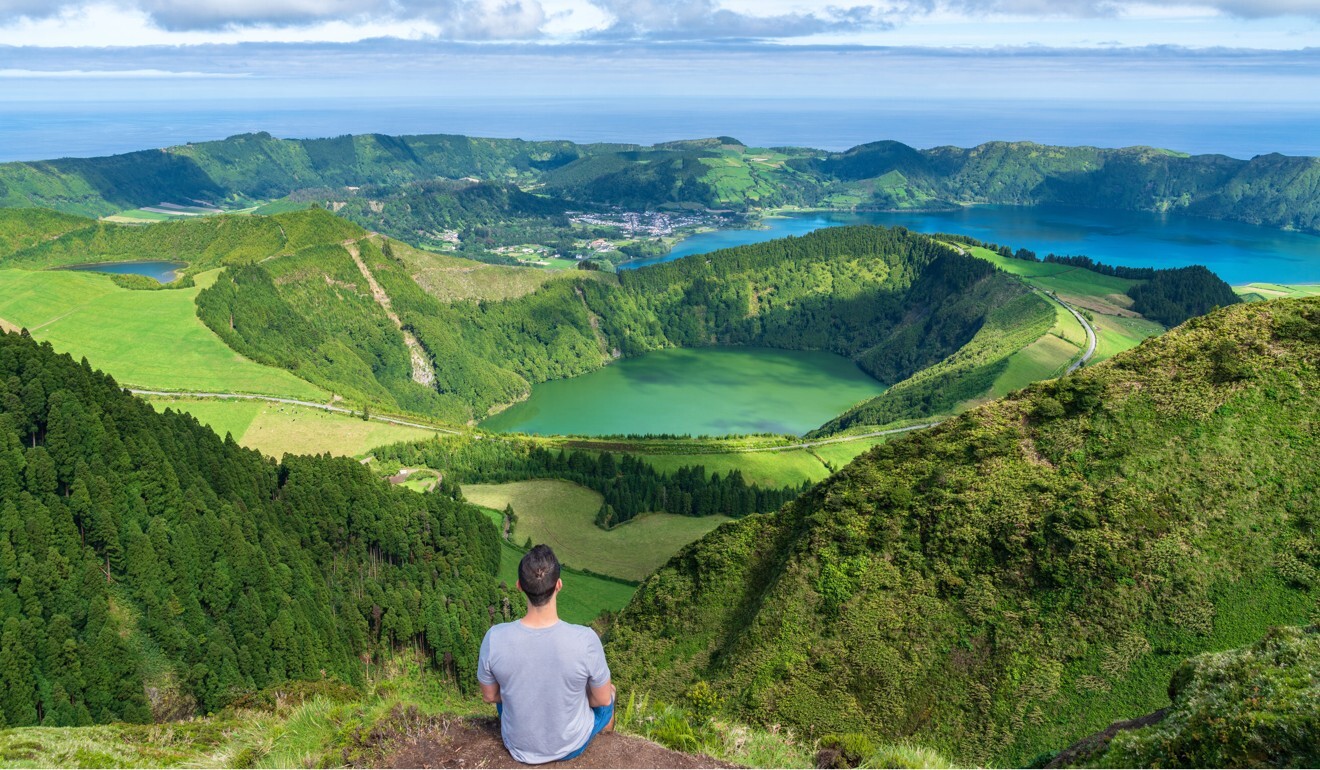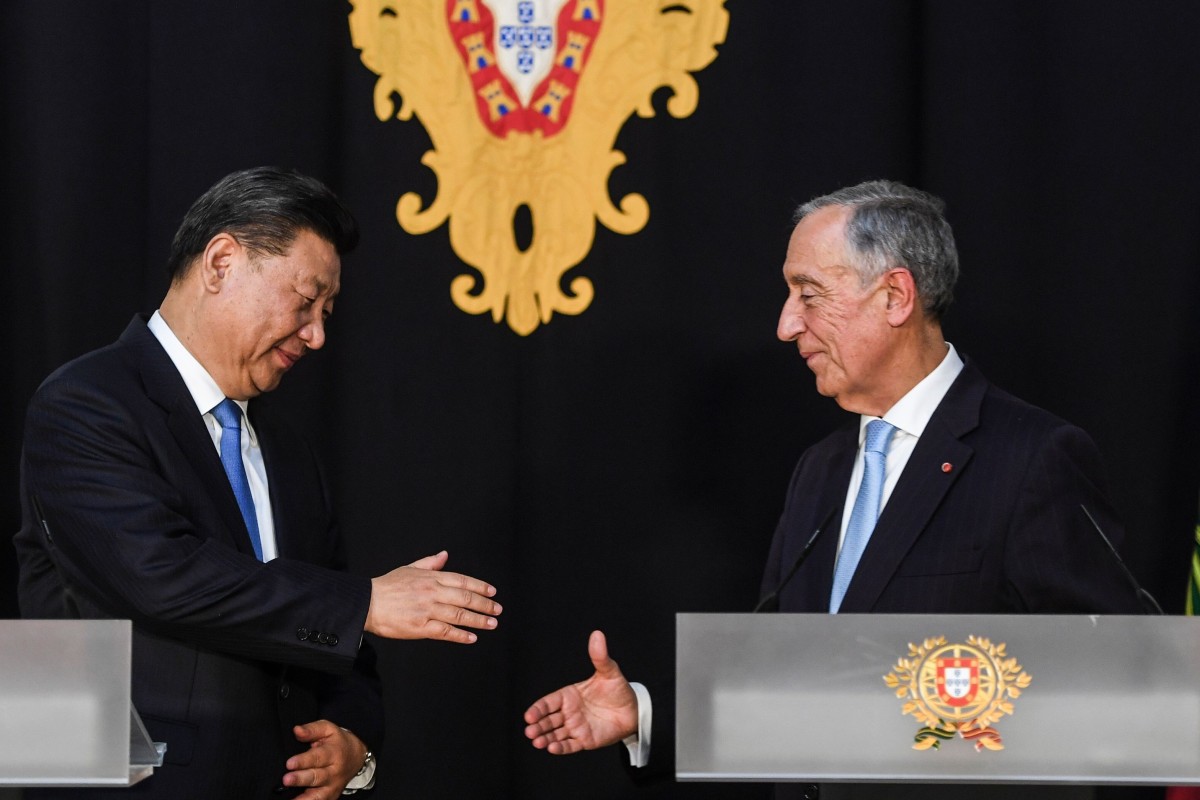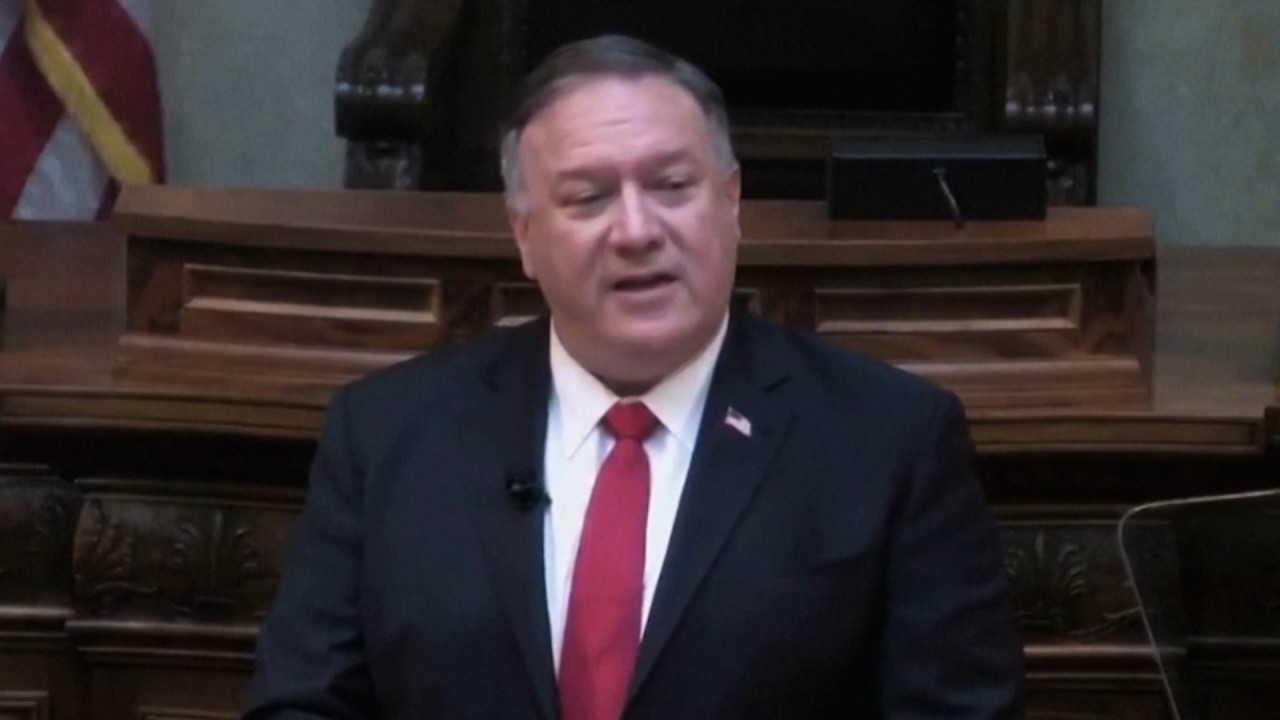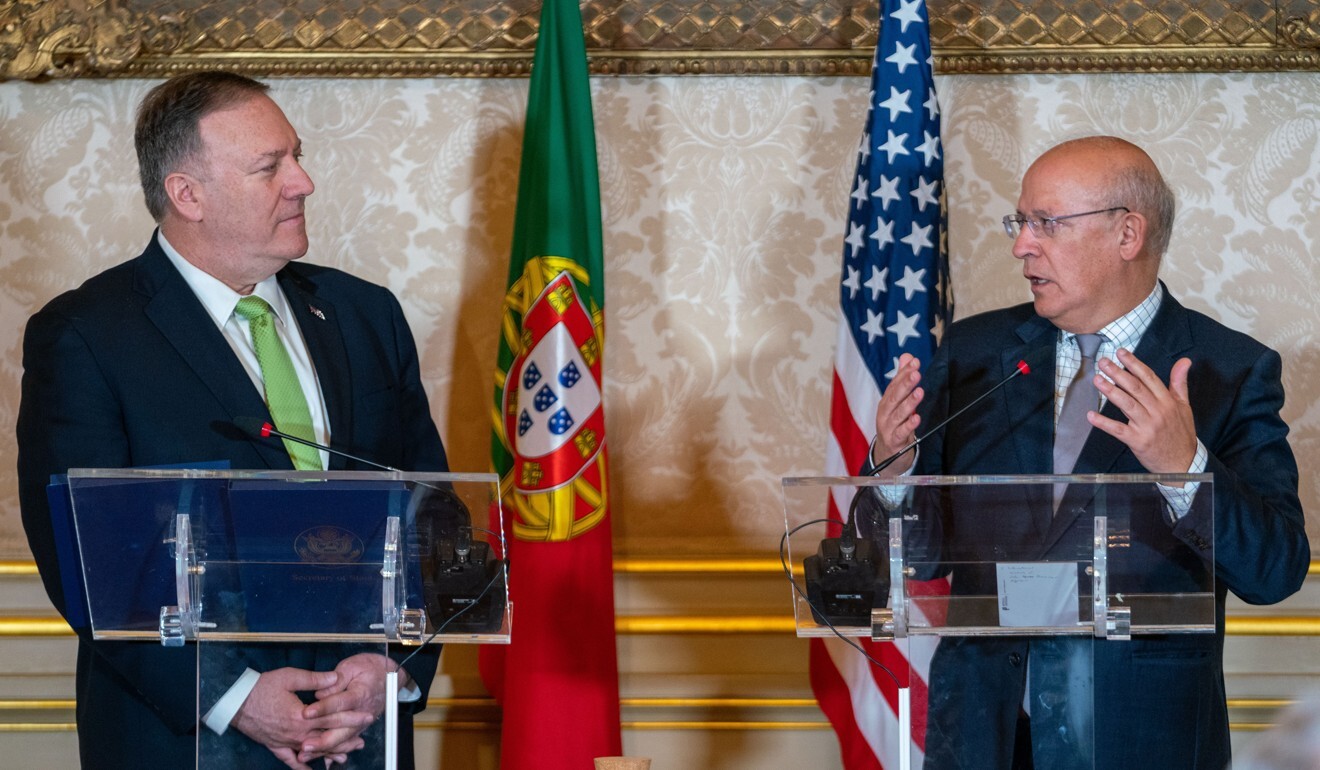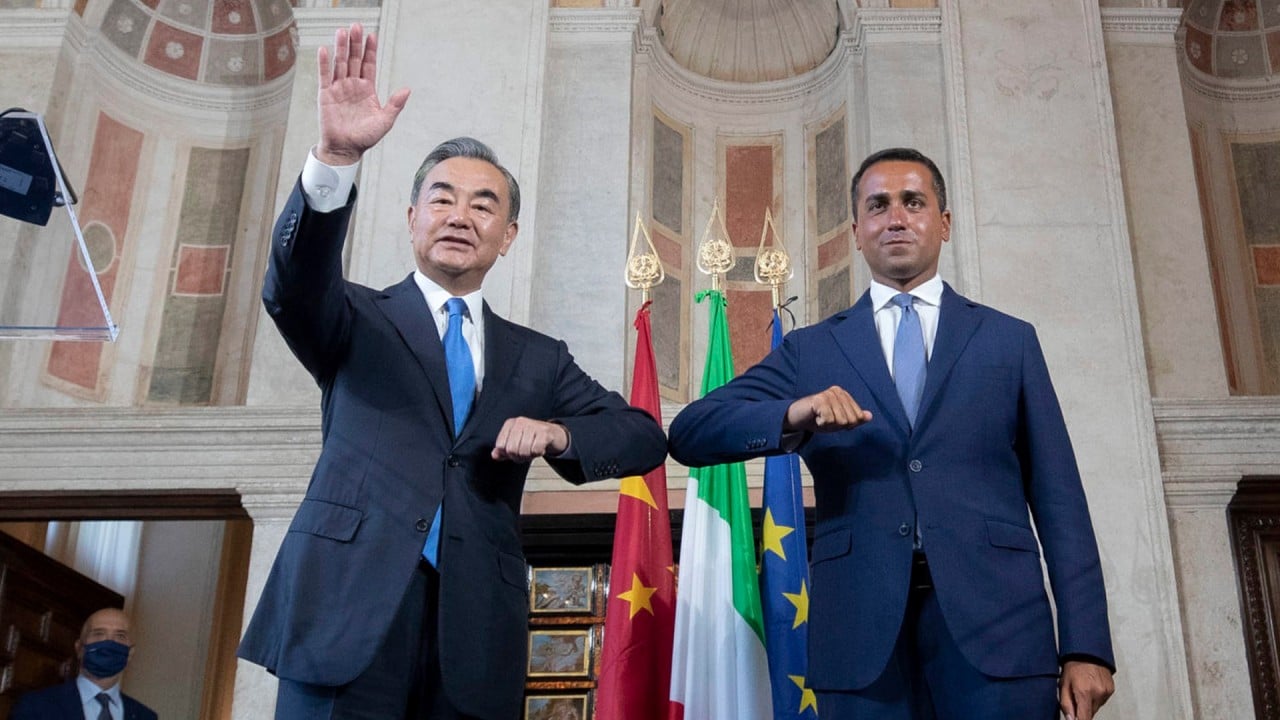Cuba has big stake in U.S. election after Trump's trashing of detente
By Nelson Acosta, Sarah Marsh
HAVANA (Reuters) - Pensioner Esperanza Chacón, 89, prays every day for Donald Trump to lose the U.S. presidential election. Like many Cubans, her livelihood has been threatened by Trump’s tightening of the U.S. trade embargo on the Communist-run island.

A vintage car passes by the U.S. Embassy in Havana, Cuba, October 30, 2020. Picture taken October 30, 2020. REUTERS/Alexandre Meneghini
Chacon’s son in Miami sends her the equivalent of $60 to $100 a month, to supplement her state pension worth just $12. But the Trump administration’s latest Cuba sanction, unveiled last month, looks set to cut off remittances.
“He’s ending my ability to live and feed myself, at this age!” said Chacon. “So I’m praying every day he doesn’t win the elections.”
Cuba has more at stake in the upcoming U.S. election than most countries in Latin America as the Trump administration has focused much of its foreign policy in the region on measures aimed, it says, at bringing about democracy in the country and its socialist ally Venezuela.
Trump unraveled a detente with Cuba started by former President Barack Obama, a Democrat, that had fostered remittances and travel to the Caribbean isle, as well as foreign investment and the private sector.
The Republican president reverted instead to a decades-old U.S. policy of choking the one-party state’s already inefficient state-run economy to force reform.
Democratic challenger Joe Biden - the vice president during Obama’s attempts to engage with Cuba - has promised to promptly reverse Trump policies that “have inflicted harm on the Cuban people and done nothing to advance democracy and human rights.”
“The U.S. election results are enormously important for Cuba because they will make the difference between continuing Trump’s policy of trying to starve Cuba into submission and Biden’s policy of restarting engagement,” said William LeoGrande, a Cuba expert and professor of government at Washington’s American University.
The Trump administration has dealt blows to tourism, foreign investment and Cuba’s energy supply by tightening restrictions on U.S. travel, sanctioning oil shipments from Venezuela and activating a law allowing litigation against firms “trafficking” in expropriated properties, among other measures.
“Most the people who stayed at our bed and breakfast were Americans so reservations were down some 40 to 50 percent by the time the pandemic hit,” said Jesus Manuel Rivero. His Casa Flamboyan B&B ranks No. 1 in Havana on Tripadvisor.
Washington has also attacked Cuba’s medical missions in a campaign that saw its allies ousting them, hitting the country’s top source of hard currency. Trump says the Cuban government trafficks in the doctors, keeping them in slave-like conditions. Havana has strongly denied the allegation.
All this has worsened Cuba’s cash crunch. The embargo cost it a record $5.6 billion over the last year, the government has said, and exacerbated shortages of even basic goods like food.
Under Trump, the reduction of the U.S. embassy in Havana to skeletal staffing and closure of the consular office after diplomats complained of a mysterious illness has also made it tough for Cubans to get visas to visit their family in the United States.
A Biden presidency would likely not only reverse Trump’s policies but also resume dialogue on matters of mutual interest like health and security that had fizzled out of late, said Emily Mendrala, who coordinated congressional discussions on Cuba policy during a stint in Obama’s National Security Council and now runs the Center for Democracy in the Americas.
Cuban dissidents, meanwhile, are divided over the U.S. election. Some hope for a Biden win, saying engagement deprives their government of an excuse for its economic woes or repression.
Others, like Jose Daniel Ferrer, leader of the island’s largest opposition group, the Patriotic Union of Cuba, say that too much leniency toward the Cuban government as - in his view - under Obama emboldens it to crack down as it wishes.
“Whoever wins the Nov. 3 elections must listen to the calls for freedom of the Cuban people and other oppressed peoples,” he said.






